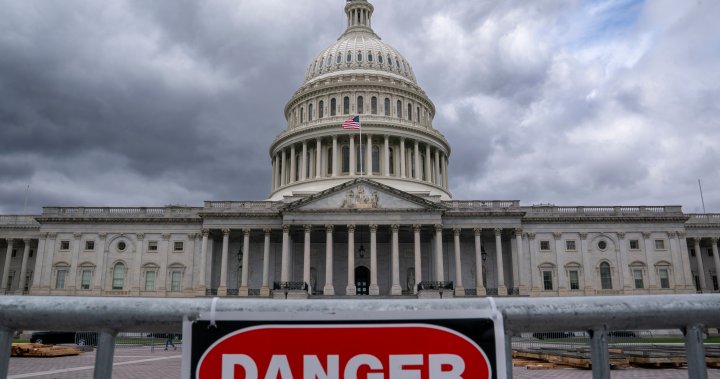
U.S. government shutdown looking more likely. What would the impacts be?
Global News
A shutdown of federal government operations may have wide-ranging impacts on military operations, employee paycheques, and the U.S. and Canadian economies.
Time is running out for U.S. lawmakers to pass legislation that can avoid a government shutdown at the end of the month — an event that could have broad implications for federal workers and the North American economy.
Congress has until midnight Sunday to reach a deal on funding the government, but far-right Republicans in the House of Representatives have dug in their heels on enacting steep spending cuts, forcing House Speaker Kevin McCarthy to try and reach a consensus within his own party.
The Democrat-controlled Senate is unlikely to support those cuts and other conservative priorities, including ending military aid to Ukraine as well as climate change funding. U.S. President Joe Biden has also vowed to veto those measures.
McCarthy is set to try and push some spending bills through the House this week in the hopes of avoiding the shutdown deadline. The Senate, meanwhile, was pursuing its own legislation that would continue current funding for just six weeks, allowing more time for budget negotiations.
If even a short-term spending resolution isn’t passed in time, the government will shut down on Oct. 1.
While some essential services will be exempt, many other government functions will be severely curtailed, and millions of federal employees won’t receive paycheques. Social services and benefits for low-income Americans will also be hit.
Economists warn a shutdown — depending on how long it lasts — may affect consumer and investor confidence in the U.S. economy, which is already feeling the pressure from inflation and multiple labour disputes. That could spill over into Canada, those experts say.
“There will be micro-disruptions for Canada,” said Thomas Davidoff, an economics professor in the University of British Columbia’s Sauder School of Business.





















 Run 3 Space | Play Space Running Game
Run 3 Space | Play Space Running Game Traffic Jam 3D | Online Racing Game
Traffic Jam 3D | Online Racing Game Duck Hunt | Play Old Classic Game
Duck Hunt | Play Old Classic Game